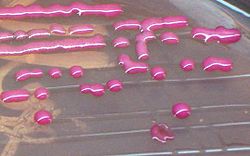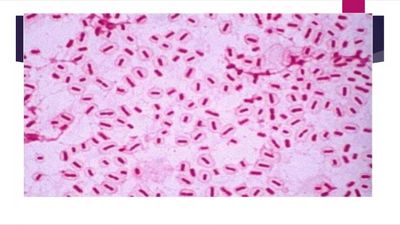Klebsiella pneumoniae belongs to a family of bacteria called Streptococcus species.

It is found worldwide and can cause infections in infants and children. Klebsiella can be isolated from the blood, sputum, stool and urine of an infant or child. The most common symptom of klebsiella is severe fever and diarrhea in a young child.
Klebsiella is one of the most common types of bacteria in the mouth of an infant. It can also infect the digestive tract of an infant by traveling through contaminated equipment, like incubators and dental instruments, during delivery. The infection can spread to other areas of the body as well, including the esophagus, lungs, kidneys and skin.
Most people are not aware that klebsiella has an antibiotic potential. A single case study has shown that an infant with klebsiella was able to kill the S. pneumoniae bacteria by undergoing a procedure known as immunization. However, immunization is not recommended for children under the age of three. For klebsiella to become “carried” by an infant, it must enter the bloodstream via the intestinal tract. This is where it can multiply rapidly and cause infection.
Since klebsiella is an aerobic organism (one that lives in water or on the earth’s surface), it is important for a parent to supervise their infant while swimming or using pools. Children should never be left unattended and should always wear a lifeguard or other adult supervising them at all times.
Some people are worried that klebsiella is present in showering water. To be on the safe side, it is important for parents to only use water from the taps or showers and never use tap water for bathing their babies. The bacteria from contaminated water can lead to an infection in a baby who is suffering from klebsiella. Another concern is the possibility of contaminated tap water leading to a contaminated well. Once a child has a bacterial infection from a tap or shower water, the chances of getting infected by drinking the same water are very high.
Klebsiella is usually not harmful to adults. However, if someone has a compromised immune system due to a medical condition, they may be more susceptible to infection and should make sure to get a flu or cold shot.

In the case of a pregnant woman, she should not engage in any physical activity during her pregnancy or while she is sick. If you suspect that your mother or father is showing symptoms of klebsiella, you should seek medical advice right away.
If a child is diagnosed with klebsiella, the first step will be to take a culture of the fluid that contains the bacteria. If this proves that the child does have klebsiella, the child can be treated with antibacterial medication. Antibacterial medication may include either a single dose or a course of intravenous medication.
If the illness is left untreated, antibacterial agents may be used to kill off all of the bacteria and prevent it from spreading. returning. If this proves impossible, doctors will prescribe antibiotics. The infection itself can then be managed by taking antibiotics to keep the infection under control.
If symptoms are present, the doctor will then try to diagnose the underlying cause. This is done by examining the blood of the child and looking for signs of the bacteria. Once the blood has been checked, doctors will look to see if the child has received adequate nutrition through breast milk or formula. If the baby has not, doctors may prescribe an antibiotic to treat the infection.
Antibiotics can help to treat bacterial infections by killing off all of the bacteria present in the body. The antibiotics that are used to treat klebsiella pneumoniae are generally given in high doses and taken over a long period of time. If the antibiotics are successful, they should help to stop the infection from spreading and to prevent a recurrence of the infection.
Long term antibiotic therapy may be needed if the antibiotics fail. There are many cases where antibiotics must be given in order to rid the child of klebsiella pneumoniae completely. These include people who do not respond to the first course of antibiotics or those whose symptoms become severe. Once a patient has recovered from klebsiella pneumoniae, their condition may require more powerful medications to keep the bacteria under control.
Klebsiella pneumoniae can be cured if proper care is taken and the proper treatment is administered when symptoms are first noticed. If the proper steps are taken and if the correct course of antibiotic medication is taken, the infection should clear up. There is no need to worry about the infection returning after treatment.